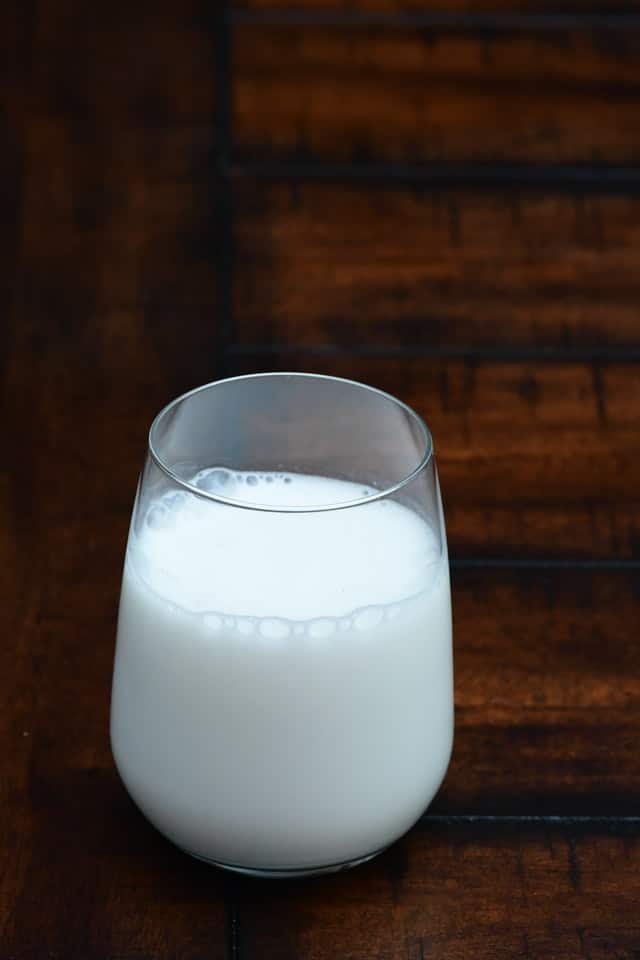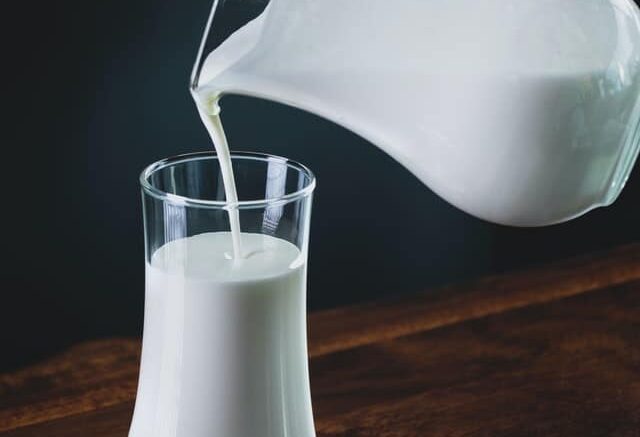Does Milk Cause Constipation? – Overview
People with sensitive stomachs might be more at risk of suffering from constipation when they drink milk.
This could be due to some people’s sensitivity to the protein sourced from milk, but really, does milk cause constipation? The answer to this question will be discussed in detail in this article.
Why Is Dairy Linked to Constipation?
Dairy, in general, is thought to be one of the leading causes of constipation. This could be due to how heavily processed most milk options in the market are.
The milk from cows may be contaminated by the originating cow’s hormones and antibiotics throughout the process.
This is why their milk gets pasteurized first to eliminate its inherent bacteria. But during the process, beneficial enzymes hasten digestion, along with some critical minerals and vitamins.
Due to the high demand for cow’s milk, farming techniques have changed. Instead of naturally feeding cows with grass, like how they used to, now they are fed grain.
So, does milk cause constipation?
This farming practice poses the risk of causing digestive issues, including constipation, especially in people who are sensitive to grains.
Many health practitioners may warn patients suffering from hay fever or colds to stay away from dairy products because of their mucus-inducing properties.
Drinking milk only worsens one’s runny nose and causes the internal systems to slow down.
This could be another potential explanation to support the affirmative answer to the question.
Dairy products, including ice cream, cheese, and milk have long been listed as foods that lead to constipation when consumed in excess.
This is likely because these dairy products are low in fiber but rich in fat.
Lactose Intolerance May Not Cause Constipation

Does milk cause constipation in people who are not lactose intolerant?
Even if your digestive system’s response to consuming milk is to make you constipated, this does not automatically make you lactose intolerant. If you do have the condition, drinking milk may cause diarrhea, not constipation.
Other symptoms brought about by the same condition include abdominal discomfort, gas, and feeling bloated. This is due to the absence of lactase, which breaks down milk, causing the dairy to start fermenting and releasing excess gas.
It is a good thing lactose intolerance can be managed with a probiotic supplement, which works like the enzyme that helps facilitate lactose breakdown in the digestive system.
Unlike Milk, Some Dairy Products May Relieve Constipation
While milk may cause constipation after being processed, some dairy products do the opposite. Yogurt, for one, may be a dairy product, but it contains probiotics, the good bacteria that improve gut health and helps soften stools.
Studies have shown how yogurt’s probiotics have come to provide relief to those who are constipated. One of these studies involved pregnant women suffering from constipation.
The study’s meta-analysis showed how probiotics in certain foods can slow down the digestive process, lowering the chances of you getting constipated.
Another dairy product that may help with constipation is kefir. It is fermented goat’s or cow’s milk, so it also has probiotics.
Kefir increases the bowel movements among constipated patients and seems to work at softening stools. It is all thanks to the fermentation process.
During the fermentation, kefir grains are mixed with milk. These grains are formed from lactic acid and yeast. Fermented kefir has been touted as a more effective probiotic source than yogurt because it has more than 61 strains of bacteria and yeasts, typical of other fermented foods.
Kefir, like many other probiotics, also helps maintain the balance of good gut bacteria. This makes it effective in addressing different digestive issues.
Aside from Milk, Where Should You Get Calcium?
You can lower the risk of constipation by controlling your milk consumption or being choosy in what type of milk you drink. Highly processed milk is the likely culprit to constipation.
Since milk is rich in calcium, protein, and other minerals, you should look for alternative sources.
It will help if you eat other calcium sources, such as green leafy vegetables, sardines, sesame, sweet potatoes, figs, almonds, sunflower seeds, and blackstrap molasses.
Instead of drinking cow’s milk, you might also want to try oat milk, almond milk, coconut milk, and rice milk. Almond milk contains high calcium, while coconut milk is an excellent source of energy.
Conclusion
Does milk cause constipation? Some may suffer from it, but others may continue to consume milk and other dairy products without experiencing adverse effects.
If you really love milk, but you still get constipated after drinking it, it would be a good idea to look for alternatives.
There are dairy-free probiotics you can consume or less processed milk that you can try. Always listen to your body’s reaction to the foods you eat.
